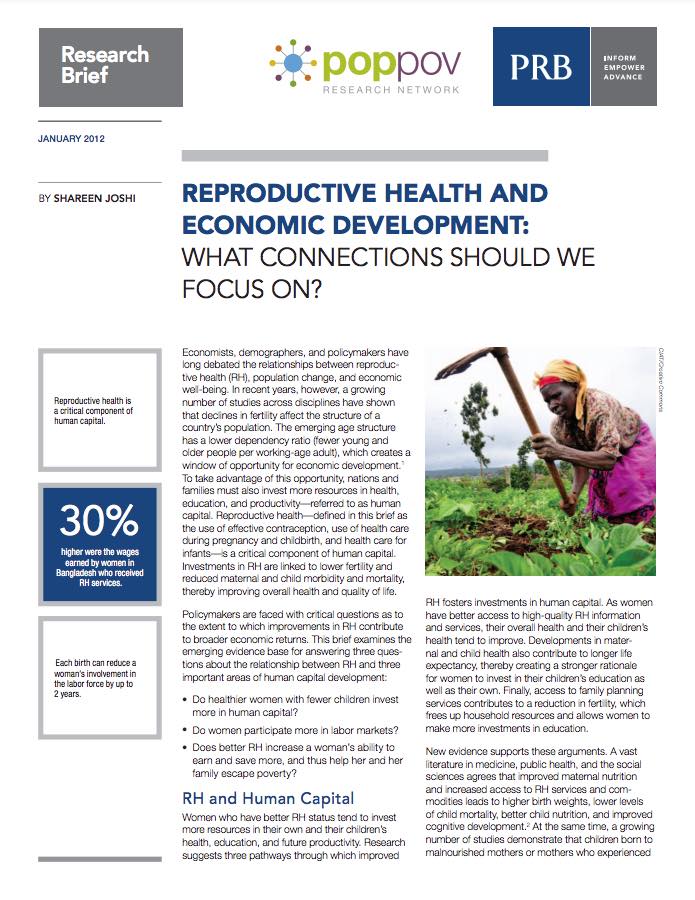
Reproductive Health and Economic Development: What Connections Should We Focus On?
(May 2012) Reproductive health—defined in this PopPov Research Network brief as the use of effective contraception, use of health care during pregnancy and childbirth, and health care for infants—is a critical component of human capital. Investments in RH are linked to lower fertility and reduced maternal and child morbidity and mortality, thereby improving overall health and quality of life.
Policymakers are faced with critical questions as to the extent to which improvements in RH contribute to broader economic returns. This brief examines the emerging evidence base for answering three questions about the relationship between RH and three important areas of human capital development:
- Do healthier women with fewer children invest more in human capital?
- Do women participate more in labor markets?
- Does better RH increase a woman’s ability to earn and save more, and thus help her and her family escape poverty?
The PopPov Network makes research grants, supports dissertation fellows, sponsors meetings and workshops, and now provides an online space for the poppov research community. The goal of the network is to highlight the needs of the researchers, highlight state of the art methodologies, encourage and teach the next generation of researchers, and share ideas and communicate findings among the research community.
Shareen Joshi is a visiting assistant professor at Georgetown University, in the School of Foreign Service. Her research focuses on international economic development, poverty alleviation, health, and demographic change.

 ">
">